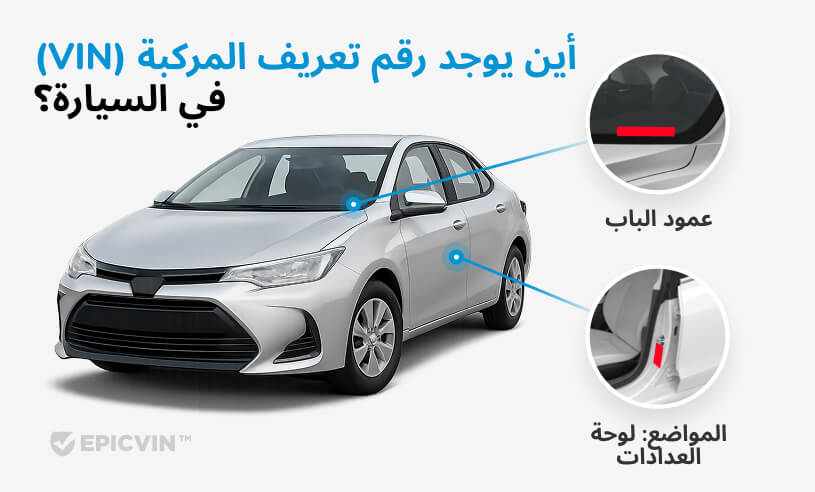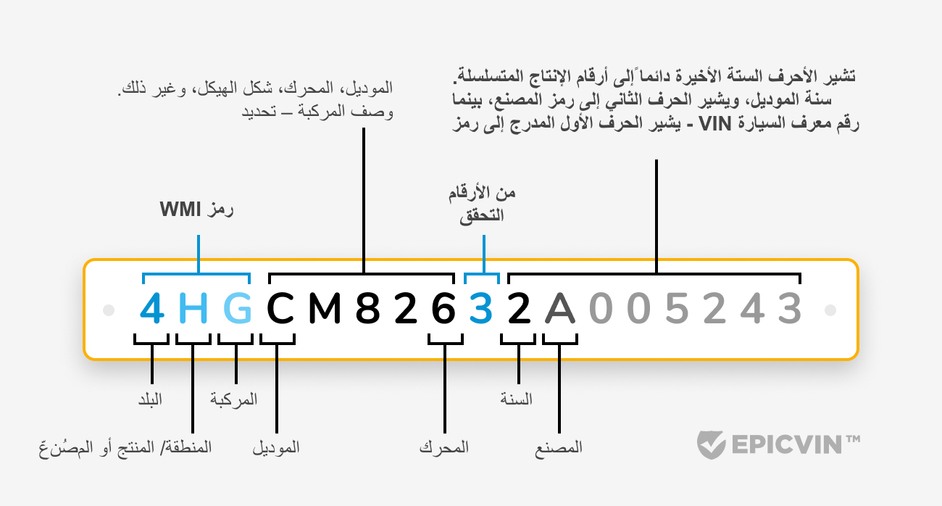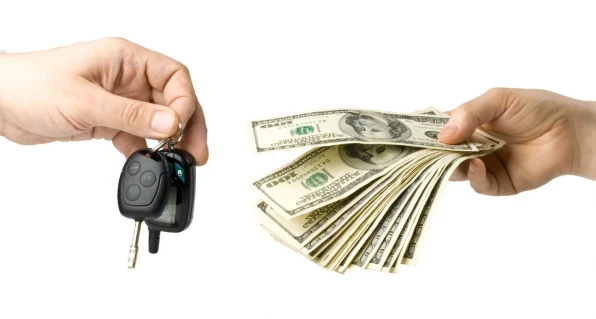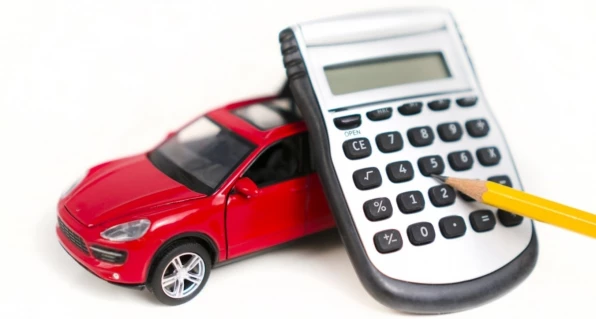
كيفية فك تشفير رقم VIN مثل المحترفين
بدءاً من فهم تفاصيل رقم VIN وصولاً إلى الكشف عن تاريخ السيارة، توفر لك هذه الم...

فك تشفير رقم الهيكل المجاني لسيارات Ferrari! 🚗 اطلع على المواصفات وورقة البناء والاستدعاءات والتاريخ الأساسي - بدون تسجيل. 🛡️✅ تحتاج لمعرفة الحوادث والمسافة المقطوعة والسند؟ قم بالترقية بنقرة واحدة.
"هل تبحث عن VIN؟
سوف تجده هنا:

منذ عام ١٩٨١، تعتمد شركة فيراري أرقام تعريف المركبات وفقًا لمعايير معهد ISO. يكشف مفكك رقم الهيكل عن تفاصيل مهمة حول مواصفات سيارتك، واستدعاءاتها، وخيارات المصنع. يتكوّن هذا الرمز من ١٧ رقمًا ويمنحك نظرة شاملة على تاريخ السيارة، مما يساعدك على اتخاذ قرار شراء مدروس.
Decoding your Ferrari VIN number provides instant access to specifications and safety information with our Ferrari VIN decoder.

يظهر رقم تعريف سيارتك فيراري في عدة أماكن في السيارة لأغراض التحقق.
| نوع الخطر | تأثيره على المشتري | خطوات التخفيف |
|---|---|---|
| خطر السرقة | ≥١٩ حالة سرقة فيراري في أخبار ٢٠٢٤–٢٠٢٥، غالبًا بسبب مفتاح خفي أو هجوم الترحيل | احفظ المفاتيح في حقيبة RF؛ فعّل GPS "My Garage" من فيراري؛ تحقق من الرقم في VINCheck الخاص بـ NICB |
| استدعاءات أمان غير منفذة | ~١٬٤٤٠ سيارة لا تزال بحاجة لإصلاح غطاء سائل الفرامل منذ استدعاء ٢٠٢١–٢٠٢٢ | تحقق من رقم الهيكل عبر NHTSA وEpicVIN؛ اطلب إثباتًا من الوكيل على تنفيذ الاستدعاء |
| انخفاض القيمة مع الوقت | معدل خسارة ٢٢–٢٨٪ خلال ٥ سنوات، مقارنة بـ٣٠٪ لباقي السيارات الفاخرة | اختر ألوانًا مرغوبة؛ احتفظ بسجلات الصيانة على منصة EpicVIN |
| التلاعب بعداد الكيلومترات | ٤٪ من تقارير VIN تُظهر تباينات في المسافة؛ أداة DEIS قد تُستخدم لإعادة التعيين | قارن الرسم البياني للمسافة في EpicVIN مع سجلات SD3 الخاصة بالوكيل |
| تاريخ مخفي للحوادث/الماء | ٥٠ إدراج مزاد نشط تُخفي تلفًا سابقًا في الإطار أو نتيجة فيضان (<٠.١٪ من الأسطول) | راجع الصور المؤرشفة في EpicVIN؛ تحقق من بقايا الملح خلف السجاد |
تقليل المخاطر: تحقق من رقم تعريف السيارة (VIN) من خلال EpicVIN و NMVTIS. قم بتوثيق المسافة المقطوعة عند فترات الصيانة، واطلب تقارير الإصلاح، وحماية مفاتيح التحكم عن بعد من سرقة الإشارات اللاسلكية.
| العطل | الطرازات المتأثرة، الأعراض، تكلفة الإصلاح التقريبية |
|---|---|
| لزوجة البلاستيك الداخلي | 1999–2014 360, F430, 458؛ أزرار لزجة، فتحات مقشرة عند ٢٠٬٠٠٠–٦٠٬٠٠٠ ميل • ٢٬٠٠٠ دولار لإعادة تشطيب كامل |
| تسريب ناقل الحركة F1 | 1998–2009 F355/360/430؛ نقل بطيء، ضوء "Gearbox Fail" عند ٢٥٬٠٠٠–٥٠٬٠٠٠ ميل • ٦٬٥٠٠ لإعادة بناء / ٢٠٬٠٠٠ جديد |
| تشقق مشعب العادم | 2005–2010 F430 و458 المبكرة؛ صوت فرقعة، ضوء CEL عند ١٥٬٠٠٠–٤٠٬٠٠٠ ميل • ٤٬٠٠٠–٨٬٠٠٠ دولار |

يتكوّن رقم هيكل فيراري من ١٧ رمزًا، كل منها يحمل دلالة فريدة:
تفاصيل إضافية يجب الانتباه لها:
مثال تطبيقي (Sample VIN: ZFFFC60A170153382):
| الرمز | القيمة | المعنى |
|---|---|---|
| 1 | Z | إيطاليا — بلد المنشأ |
| 2–3 | FF | فيراري — الشركة المصنّعة |
| 4–8 | FC60A | الطراز، المحرك، نظام السلامة، الفئة، التجهيزات |
| 9 | 1 | رقم التحقق |
| 10 | 7 | موديل سنة ٢٠٠٧ |
| 11 | 0 | مصنع مارانيللو |
| 12–17 | 153382 | الرقم التسلسلي للسيارة |
عام 2005
طراز Ferrari
موديل F430
نوع الوقود
محرك
صنع في
يكشف فك تشفير رقم تعريف السيارة (VIN) الكامل لسيارات فيراري عن تفاصيل شاملة عن سيارات فيراري تتجاوز المواصفات الأساسية من خلال عدة أماكن في قاعدة البيانات.
تربط EpicVIN كل رقم هيكل فيراري بتحديثات NMVTIS يوميًا — لا توجد خدمة أخرى تعرض بيانات الرهون بهذه السرعة.— أليكس بلاك، مدير التسويق في EpicVIN
توجد على لوحة القيادة بالقرب من الزجاج الأمامي، وعمود باب السائق، وكتلة المحرك، ووثائق لوحة التسجيل.
نعم، يقوم NMVTIS بمقارنة تقارير المسافة المقطوعة من سجلات الملكية والمزادات وسجلات الخدمة لتحديد أخطاء التلاعب بالأرقام.
تُظهر أوراق تصنيع المصنع عبر بوابة MyFerrari وصف المعدات الأصلية وتفاصيل الأسعار لطراز سيارتك المحدد.
تتطلب NMVTIS الإبلاغ عن جميع سندات الملكية الخاصة بالمركبات المحطمة أو المتضررة من الفيضانات أو المعيبة خلال 30 يومًا في جميع أنحاء المملكة المتحدة والأسواق الأخرى.
تشمل هذه العملية استدعاء طرازات من 1999 إلى 2014، بما في ذلك 360 و F430 و 458 من الطرازات القديمة.
نعم، تستخدم النماذج الأولية المصنعة في المصنع الرقم ”999999“ في خانة الرقم التسلسلي كرمز تعريفي، وقد سُمي هذا الرقم على اسم بروتوكولات الاختبار التي وضعها الأسطورة إنزو فيراري بنفسه.
تظهر سجلات سيارات فيراري الجديدة في غضون 24 ساعة من شحنها من المصنع في إيطاليا للتحقق من صحتها.
نعم، تقوم EpicVIN بأرشفة جميع نتائج المزادات مع الصور وأسعار البيع بشكل دائم على موقعنا الإلكتروني.
تظهر محاولات غسل الملكية من خلال تسجيلات شركة Montana LLC في تحليل الجدول الزمني للملكية للتحقق الكامل للمشترين.
اكتشف نصائح الخبراء والنصائح والأخبار حول شراء المركبات المستعملة وصيانتها.

بدءاً من فهم تفاصيل رقم VIN وصولاً إلى الكشف عن تاريخ السيارة، توفر لك هذه الم...

اقرأ هذه المقالة لاكتشاف كيفية بيع سيارة

اقرأ هذه المقالة لمعرفة المزيد حول سداد قرض السيارة